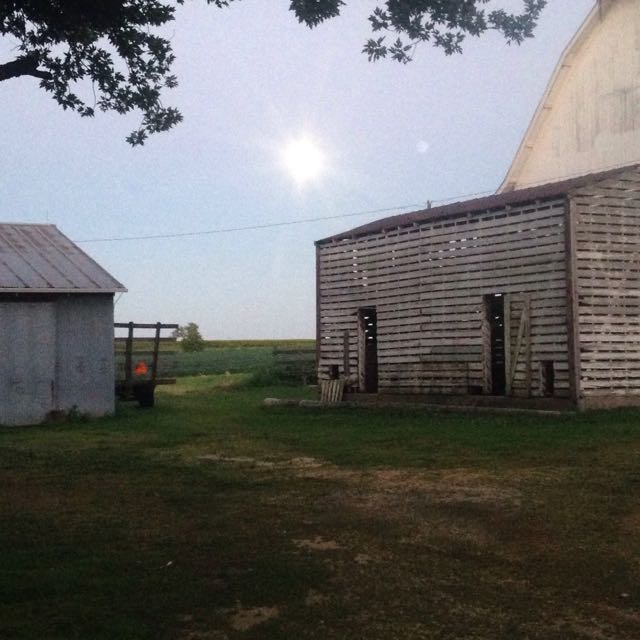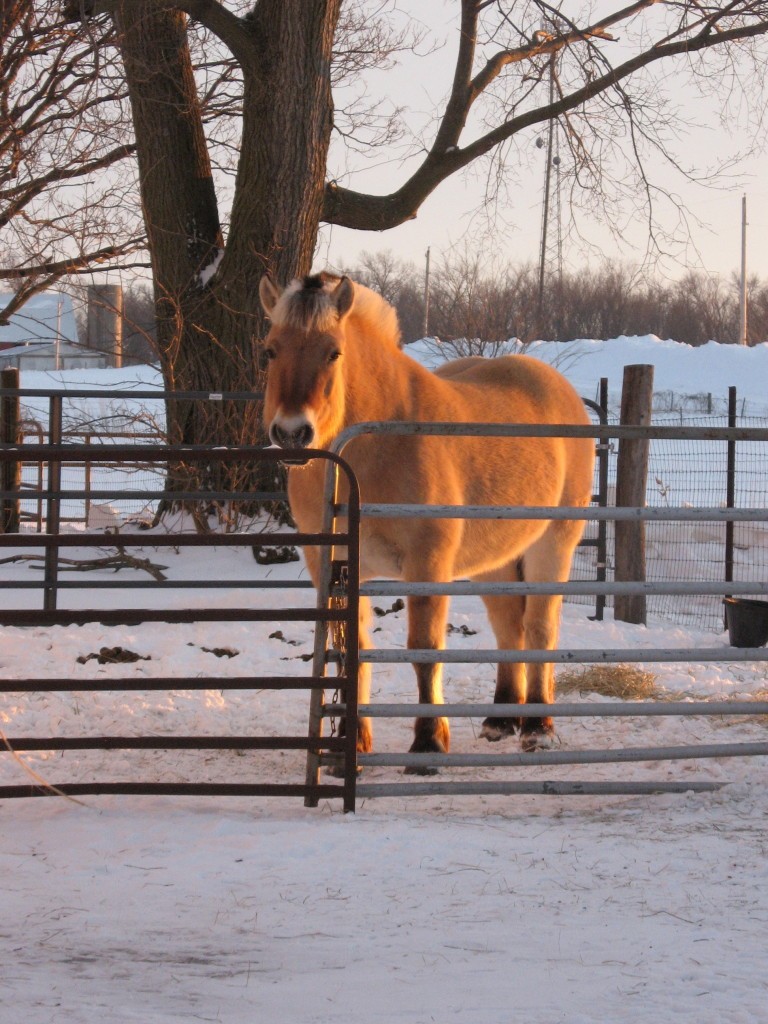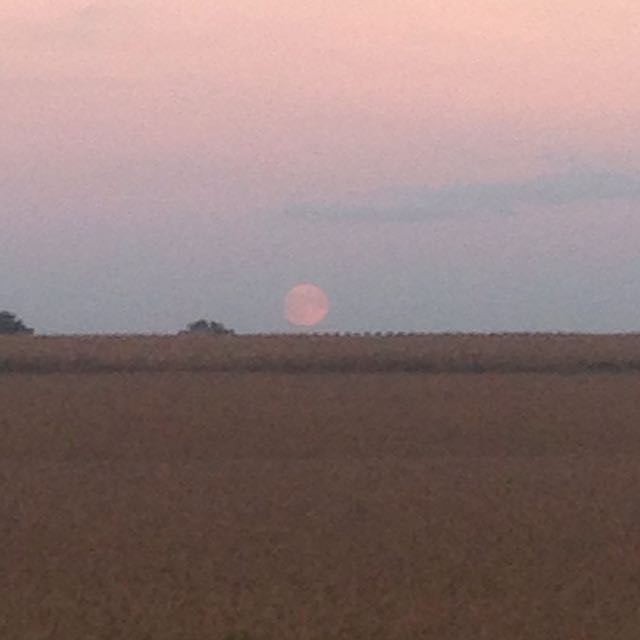“He will never come to his house again; his place will know him no more,” (Job 7:10 NIV) Bruce said when I remarked at how sad auctions are. “I remember you said this once.” I shook my head. Of course I didn’t remember.
I looked at the groups of men and some women hovered around tables full of items the auctioneer was methodically naming and singing prices as people competed for items, those items, each a remnant of a man’s life. Frank had raised miniature horses, was out of them by the time we met at church eight years ago, but still his horse stuff was laid out on tables–clippers, hoof paring knives, nippers, harness. My eyes teared up when Bruce explained that Frank had rebuilt the bright green John Deere 1941 AR tractor. I could imagine his hands dug in the guts of the thing, grease stained, taking parts out, adding others. It felt good that someone from his wife’s family bought it, a memorial more profound than flowers draped over a casket.
I am not saying we were close. We just talked regularly after church. After we left that church, we lost touch. Our friends told us how Frank and Lois were doing, how Frank began to fail. We did not go to his funeral.
But this auction was like setting the casket in the ground, maybe more final, the items displayed artifacts of a person’s life, things his fingers had touched, things he and his wife had shared, that would pass into others’ hands.
Those others who were there to compete for Frank’s goods. I stood at the back of a table hoping to bid on clippers and perked up at the hay hooks. I looked back at Bruce and he shook his head. A man standing next to me asked if I grew hay. “Yes I do,” I said. “Small squares?” “Yes.” Bruce said we’d just be buying to be buying. I agreed thinking how rickety I felt pulling hay off the constantly shifting wagon, afraid I’d stick our hay hook into my leg.
I missed the clippers because I couldn’t get up close to see what he was selling. Bruce said most of the people were standing around looking but not interested in buying and that most auctioneers held items up so you could see what you were getting.
Bruce gave the okay to bid on a brush hog. Our neighbor Craig looked it up and said they ran between $800 and $1,200. I jumped into the middle of bidding. When the price went to $550, Bruce shook his head but the price stayed put. Bruce went pale. And suddenly I was hoping someone would raise me by $25, but nobody did. Shoot the thing still had the labels attached. Bruce frowned. But our neighbor reassured us we got a good deal, that we could use it to clean up the small trees on our land and the brush behind our shed. “Thank you,” I said. You can always sell it for a little more than you paid for it. It’s a Woods mower. It’s a good machine. You paid a good price.” I could feel Bruce relax as he said this.
“How are we going to get it home?” Bruce asked.
“Put it in the back of our truck?” But it was too big for the back of our truck even though we watched a woman maneuvering a bucket on a tractor to set a small disk harrow in the back of someone’s pick up. If she set it down wrong, she could smash it.
Craig said, “I’ll bring it home for you.”
Craig is a big man with a beard that makes him look fierce even though his voice is gentle and reassuring. He runs the ground on our south border and across the road, as well as other land that comes to around a thousand acres. His wife was buying primitives for her antique business.
By then the cold had sunk close to my bones and the auctioneer was chanting through to the end of Frank’s stuff. The guy who bought the disk harrow was guiding it into the back of his pick up as it dangled from a tractor bucket. Another guy drove across a yard with his truck full of fire wood. The auctioneer chanted about piles of wood. Craig’s wife waited to bid on a copper weather vane that the auctioneer had avoided until the end.
People gathered Frank’s stuff and hauled it away in their pick ups and trailers. I heard the tractors start up and move around. The grass was smashed down and black. Bruce and I carried our items to our truck.
“He will never come to his house again; his place will know him no more,” (Job 7:10 NIV) There’s an ache in this, not unlike the ache when Morgen stands at the fence, looking for me to choose her for once, when I stay behind closed doors or pick Tessie. I wonder if our homes miss us when we die, like the dog who lay down on his owner’s grave or the horse who lost a hundred pounds because his person had been killed in a car accident.
After my parents died a smell rose in the house where I grew up. Maybe it was just mice and my brother too busy to deep clean, but I also wondered if it was the dried sweat of the house’s longing for great souls who tended the place without letting it tend them.
In Big Magic Elizabeth Gilbert told the story of Dr. Robin Wall Kimmerer and environmental biology teacher at SUNY College of Environmental Science and Forestry in Syracuse, New York, who asked her students if they loved nature. They raised their hands. Then she asked if they thought nature loved them. None of them raised their hands. The teacher went on to say, “We have a problem.” Robin says, “The exchange of love between earth and people calls for the creative gifts of both. The earth is not indifferent to us, but rather calling for our gifts in return for hers–the reciprocal nature of life and creativity” (203). We tend the earth. She tends us.
The Apostle Paul talks about how earth groans with longing for the sons of God to be revealed. “We know the whole creation has been groaning as in the pains of childbirth right up to the present time” (Rom. 8: 22, NIV) Holy Writ is full of the sentience of the world from trees singing when God comes to judge the earth to the Heavens declaring the glory of God. We have learned that the stars and sun and planets do sing. NASA’s Voyager listened and recorded their voices.
I think our homes, our lands mourn when we die. And maybe after awhile the house, and yard and fields and barns might accept the new people come to tend them. (I say this because our farm has felt like a stiff horse, ready to buck, for the last eight years, as though it was mourning its former owners and resenting the deep changes we made, we had to make, like a dog home from the vet, not happy about the pain and stitches it can’t pick loose.) Yes a house might even come to love her people. We’re still waiting here.





